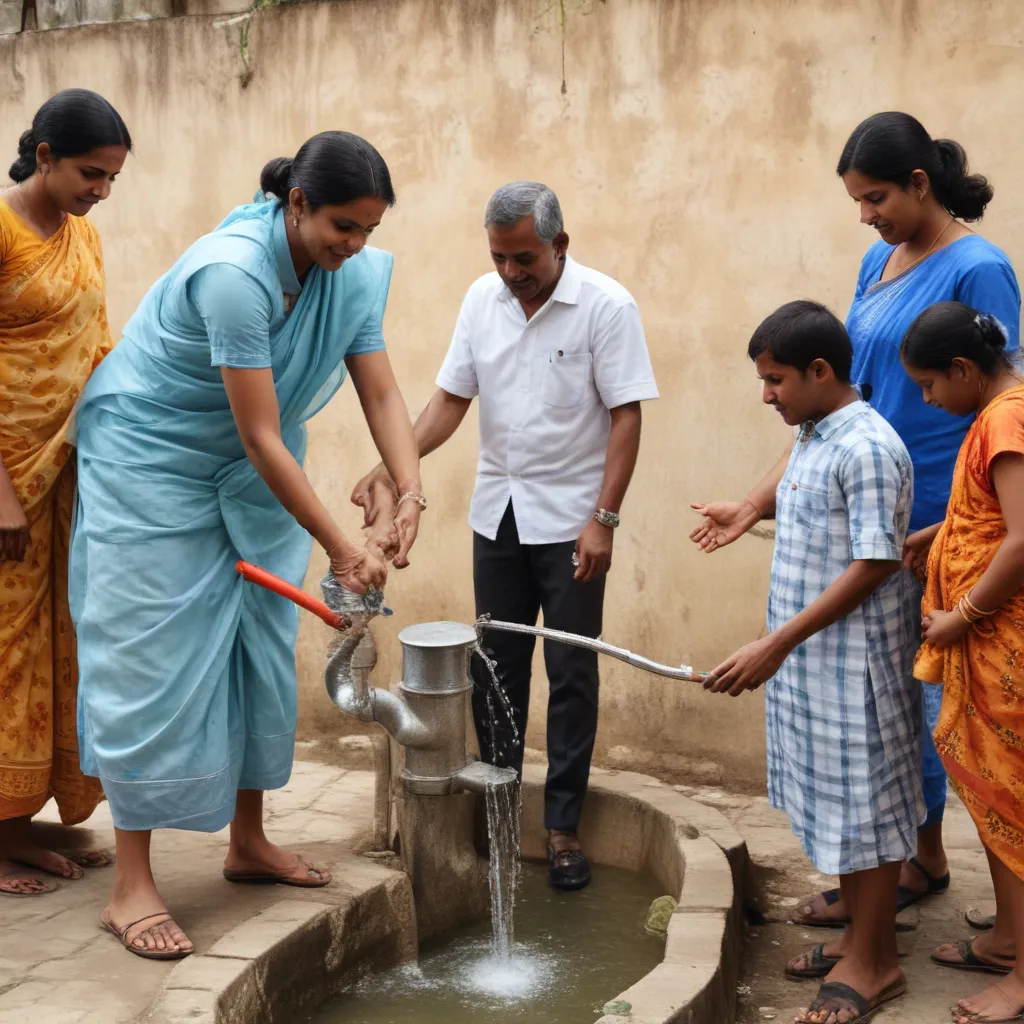
Addressing India’s WASH Challenges through Innovative Collaboration
India’s water and sanitation landscape faces a multitude of pressing challenges, from the growing demand for clean water to the pressing need for improved wastewater management. As the nation strives towards the Sustainable Development Goals (SDGs), the city of Hyderabad stands at the forefront of a transformative approach – harnessing the power of public-private partnerships (PPPs) to deliver sustainable and equitable water, sanitation, and hygiene (WASH) services.
Hyderabad’s WASH Landscape: Opportunities and Obstacles
Hyderabad, the vibrant capital of Telangana, is a rapidly urbanizing metropolitan area with a population exceeding 10 million. The city’s water and sanitation infrastructure has struggled to keep pace with the surging demand, leading to persistent issues like water scarcity, inequitable access, and inadequate wastewater treatment.
“The city’s water supply network is plagued by high non-revenue water levels, outdated distribution systems, and frequent service interruptions,” explains Anant Patani, a seasoned expert in the sector. “Similarly, the wastewater management system faces challenges in achieving comprehensive coverage and ensuring proper treatment and disposal of effluents.”
These challenges are further exacerbated by the fragmented regulatory frameworks, limited technical expertise, and inadequate community engagement that have historically hindered the WASH sector in India. However, Hyderabad’s leadership has recognized the urgent need for a transformative approach, one that leverages the strengths of both the public and private sectors.
Leveraging Public-Private Partnerships for Sustainable WASH Solutions
Hyderabad’s WASH sector has witnessed a paradigm shift in recent years, with the city government increasingly embracing the power of public-private partnerships (PPPs) to address the pressing challenges. These innovative collaborations have unlocked new avenues for investment, expertise, and community-centric service delivery.
One such groundbreaking initiative is the Hyderabad Water Supply and Sewerage PPP project, a joint venture between the Hyderabad Metropolitan Water Supply and Sewerage Board (HMWSSB) and private sector partners. This ambitious project aims to improve water supply coverage, enhance operational efficiency, and expand wastewater treatment capacity across the city.
“The Hyderabad Water Supply and Sewerage PPP has been a game-changer, leveraging the technical and financial resources of the private sector to modernize the city’s WASH infrastructure,” says Patani. “By sharing risks and responsibilities, the partnership has enabled the city to make significant strides towards universal access to clean water and improved sanitation.”
Driving Sustainable Impact through Innovative Financing
One of the key advantages of the Hyderabad WASH PPP model is its focus on innovative financing mechanisms. The partnership has explored a range of funding sources, including blended finance solutions that combine public and private capital.
“The project has successfully tapped into a diverse pool of financing, including bilateral and multilateral development loans, as well as private sector investments,” explains Patani. “This has helped overcome the upfront investment barriers that have traditionally hindered WASH infrastructure development in India.”
The financial structure of the PPP also includes performance-based incentives, aligning the interests of the public and private partners to ensure sustainable service delivery and optimal resource utilization. By embedding sustainability metrics and community impact indicators into the contractual agreements, the partnership has set a new benchmark for accountability and transparency in the WASH sector.
Empowering Communities through Participatory Approaches
Recognizing the crucial role of community engagement, Hyderabad’s WASH PPP has placed a strong emphasis on fostering collaborative relationships with local stakeholders. This includes involving residents in the planning, implementation, and monitoring of project activities, ensuring that the solutions developed are responsive to the community’s needs and priorities.
“The PPP has established dedicated community engagement teams, working closely with local leaders, women’s groups, and youth organizations to raise awareness, gather feedback, and address any concerns,” says Patani. “This participatory approach has been instrumental in building trust, enhancing project ownership, and ensuring the long-term sustainability of the WASH services.”
Moreover, the partnership has invested in capacity-building initiatives, empowering public sector employees and community members with the knowledge and skills necessary to effectively manage and maintain the WASH infrastructure. This holistic approach has catalyzed a shift in mindsets, transforming the community from passive recipients to active stewards of their water and sanitation resources.
Unlocking the Potential of WASH PPPs in India
The success of the Hyderabad WASH PPP model has garnered national and international attention, serving as a blueprint for other cities and states across India. The partnership has demonstrated the immense potential of public-private collaboration in addressing the country’s complex WASH challenges, paving the way for more ambitious and impactful initiatives.
As India continues to strive towards the SDG targets for universal access to safe water and sanitation, the lessons learned from Hyderabad’s WASH PPP offer valuable insights for replication and scaling up. By streamlining regulatory frameworks, developing fair risk-sharing models, and fostering a conducive environment for private sector participation, other Indian cities can emulate Hyderabad’s approach and unlock the transformative power of innovative WASH service delivery.
“The Hyderabad WASH PPP is a shining example of how strategic collaboration between the public and private sectors can lead to sustainable, equitable, and community-driven WASH solutions,” concludes Patani. “As India marches towards a water-secure and sanitation-abundant future, these pioneering partnerships will be critical in driving progress and creating lasting change.”
Conclusion: A Blueprint for Sustainable WASH Service Delivery
Hyderabad’s journey in leveraging public-private partnerships for sustainable WASH service delivery offers a compelling blueprint for cities across India. By harnessing the strengths of both the public and private sectors, the city has overcome longstanding challenges, mobilized innovative financing, and empowered communities to become active stakeholders in the WASH transformation.
As the nation continues its progress towards the Sustainable Development Goals, the lessons learned from Hyderabad’s WASH PPP model can be replicated and scaled up, inspiring other cities to embark on their own sustainable WASH journeys. Through continued collaboration, community engagement, and a steadfast commitment to innovation, India can ensure that every household, every school, and every community has access to the essential water and sanitation services that are the foundation of a thriving, equitable, and sustainable future.
To learn more about Hyderabad’s WASH PPP and explore opportunities for replication, visit https://jointactionforwater.org/.

